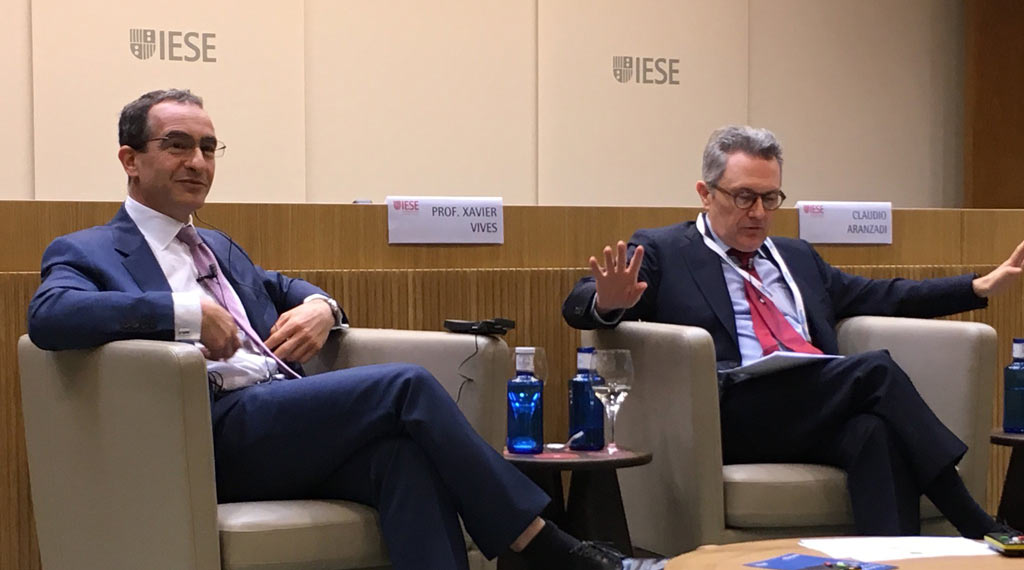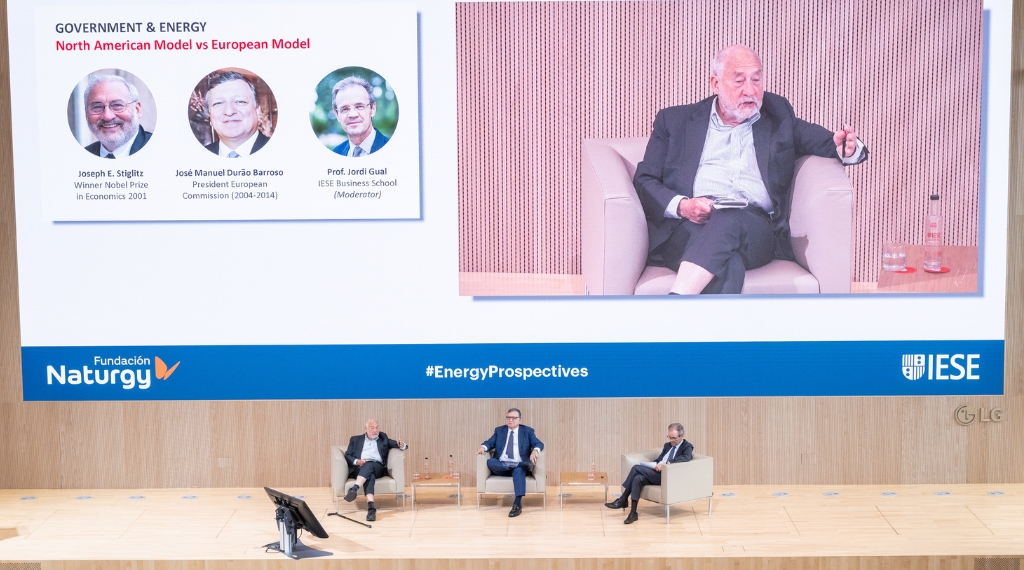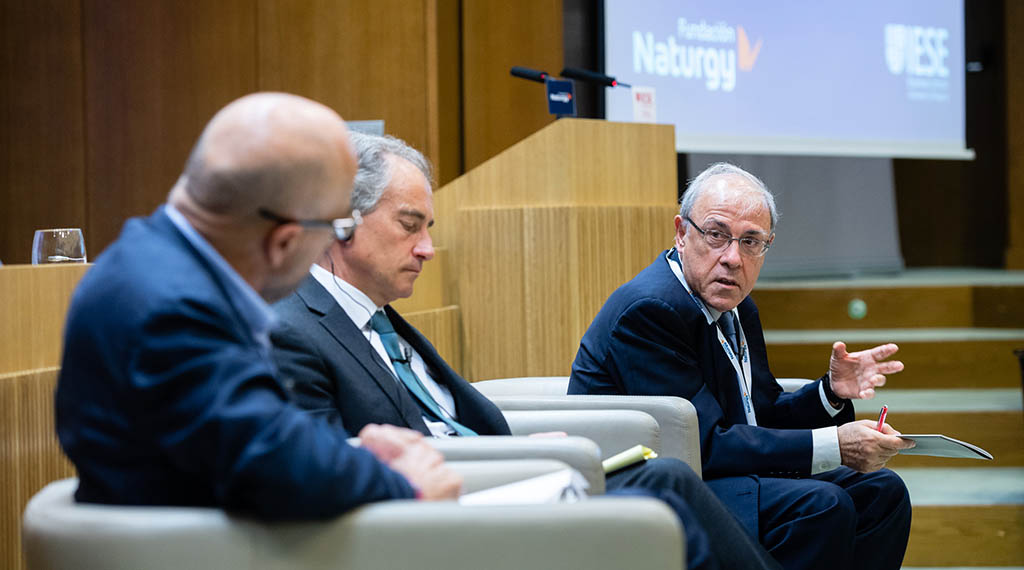Stories
How optimistic should we be about clean energy?
BloombergNEF founder and Spain's former Industry Minister debate the future of sustainability
BloombergNEF founder Michael Liebreich and prof. Xavier Vives in the Energy Prospectives meeting
Photo: Billy Gray
March 15, 2019

That dramatic actions must be taken to combat climate with clean energy has, with a few notable exceptions, become an international consensus. Yet differences of opinion, and in degrees of optimism, persist among those working toward a solution.
An encouraging key takeaway of Thursday’s Energy Prospectives panel at IESE Madrid was that energy industry leaders advocating for sustainability agree both on the gravity of the problems caused by emissions and the urgent need for change. The event, organized in collaboration with the Naturgy Foundation, focused on decarbonization, the process aimed at expanding an economy based on low-carbon sources that will curtail greenhouse gas emissions.
Speaker Claudio Aranzadi, the former Spanish Minister of Industry and Energy, said that people must be made aware of the need to “pay [for decarbonization] now in order to prevent the grave damage done by climate change to their children, grandchildren and great-grandchildren.”
Aranzadi would be viewed as a realist by some of his industry peers with loftier views of decarbonization’s cost-efficiency and, especially, the speed with which it could reshape the global energy and climate pictures. He emphasized the expenses of the shift, and that they’ll rise over time, saying that decarbonization would not be a “free lunch.” That’s especially true as it develops across nations with divergent carbon footprints and political and business attitudes toward the strategy and the alternative energy sources it relies on.
BloombergNEF founder Michael Liebreich followed Aranzadi by acknowledging the challenges of globalism. But he added that while globalism creates certain hurdles, it should also underscore the fact that when it comes to energy and the environments, “Everyone has the same problems.”
That common ground should compel unified action. But how should we address those problems? And how skeptical should we be of a quick and easy transition to a low-carbon economy?
Liebreich is no cynic. “By 2040, we will have what I call a three-third world,” he said. “One-third of electricity will be wind and solar, one-third of cars will be electric and the economy will be one-third more energy productive.” And that’s still not enough. Looking beyond a three-third world, he advocated for sustainability’s growth in sectors including agriculture, shipping and, crucially, “heat, heat, heat.”
Indeed, Liebreich praised a decentralized, country-by-country and sector-by-sector approach whose relatively small victories could be replicated on a larger scale. It’s the sort of incremental method that has yielded tremendous progress in the U.K., for instance, where power generated by coal has plunged from 40 percent to 5 percent of the market in just six years.
He added that rapid fire technological advances including the digitization of infrastructure, the increasing affordability of AI, the ubiquity of chips and sensors and practically free communications have the potential to speed up the transition to low-carbon economies.
During a discussion between Aranzadi, Liebreich and Prof. Xavier Vives following the individual presentations, Aranzadi said that he’s “not a technological pessimist. But the decisions are incredibly complex. And there are many wrong paths to take. The response will have to be centralized. It’s necessary to meet the aggregated demand of challenges.”
“There will be costs,” Liebreich said. “I’m not denying that.” Yet the pace of change today, and its growing pains, could auger well for sustainability. That’s not only thanks to new technology, but also the evolving role of regulators who now confront until recently unimaginable issues like Facebook’s advertising and data policies.
Differences aside, it was clear by the end of the event that both men agreed with Aranzadi’s assessment that“decarbonization’s costs now pale against the potential social costs in the vulnerable future.”


